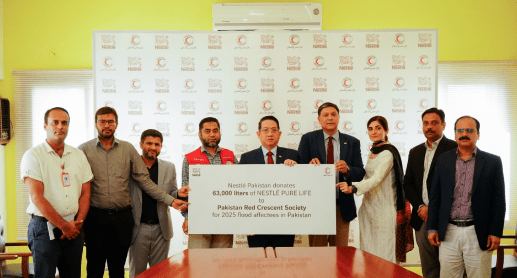This article is titled: “Will Pakistan eventually have to launch a nuclear attack on India over water?”
Let us explain how India has already waged war against Pakistan, and how it continues to succeed in this war, while the Pakistani public and its rulers sleep soundly, under the illusion that India has not deployed its military against Pakistan on the battlefield.
As expected, the World Bank rejected Pakistan’s complaints and evidence regarding the construction of the Kishanganga Dam, calling them insufficient. This is a major diplomatic defeat for Pakistan. The construction of the Kishanganga Dam began in 2009 during the PPP government, with PML-N in strong opposition. The case continued in the International Court for two years after 2011, but in the end, the arbitration court not only dismissed Pakistan’s objections but also permitted India to divert the water flow.
It is worth remembering that this was the time when India was being labeled as the “Most Favored Nation,” and foreign affairs were under Prime Minister Nawaz Sharif himself. The pro-India stance didn’t end there. Research on the Indus River revealed that India had blocked all its water by constructing dams. Despite the controversial hydroelectric project “Nimoo-Bazgo,” Pakistan was prevented—by the Prime Minister’s instructions—from taking the matter to the international court with the excuse that it would be a “waste of time.” India completed the project, and during that time, the “Chutak” project was also finalized, while we remained busy dreaming of better relations with India.
I generally refrain from criticizing political figures, but the devastation of agriculture and water resources over the past decade makes my blood boil. Consider the responsibility of the PML-N: during their tenure, India completed 14 small dams and 2 large dams on the Indus River alone. As a result, Mangla Dam has remained dry since October 2017, and Tarbela Dam is now dependent on rainfall. The story doesn’t end here—our future concerning water is very grim.
Two years ago, Indian Prime Minister Narendra Modi declared that he would leave Pakistan begging for every drop of water—and he is fulfilling that promise. India has already completed 11 dams of various sizes on the Chenab River, including the Salal and Baglihar Dams. On the Jhelum River, it is building 52 dams including the Wullar Barrage and rubber dams. Additionally, 24 more dams are under construction on the Chenab. Beyond that, feasibility studies and parliamentary processes are underway for 190 more dams.
All this is happening right in front of our politicians and rulers, yet no one seems to care. One is demanding respect for voters, another is playing politics over religion, and another is looting the country in the name of Bhutto.
If this issue isn’t part of any political party’s manifesto, then we are the ones to blame. The public’s voting criteria are things like paved streets, free meat-filled naan, or flashy development schemes. In reality, the people have become mental slaves, whose ability to think critically is dictated by their political idols. If someone like me—with limited knowledge—can worry about these facts, then why don’t our so-called intellectuals and media houses talk about them?
Because we, the people, don’t want to talk about these issues. I don’t blame the politicians, because their assets are abroad. If, God forbid, anything happens to Pakistan, they will escape abroad in no time. I blame the common people, who have to live here. May God never show us the day when brothers are slitting each other’s throats over a sip of water.
India is not doing this for its farmers. Its real objective is to turn Pakistan into a barren land and starve its 220 million people. India knows that going to war with Pakistan’s army is equivalent to its own destruction, because Pakistan has a clear policy: if war breaks out and its security is even slightly threatened, it will use nuclear weapons. That’s why India is cunningly destroying Pakistan in a way that doesn’t require confronting its army or its people directly.
The Pakistani public shouldn’t think that if India blocks our water, we’ll still get enough to drink. People may believe that their home’s water bore or agricultural tube wells are enough—but let me tell you, if river water is blocked, those bores and wells will dry up too, because the underground water table will drop drastically. The land will stop producing crops.
The famine that would emerge in Pakistan will be horrifying—and you can imagine the scale of destruction. Eventually, Pakistan will face two options: die of thirst, or die in a nuclear war. In either case, the people of Pakistan will face extreme suffering, and this will happen if we continue to remain silent and criminally negligent.
If you think the army can do something in this situation, you are being naive. The army is meant to fight. At best, it could target Indian dams with missiles—but that’s not a permanent solution, because India would retaliate, and this path leads to mutual destruction. Our governments must be pressured to stop India diplomatically from building dams and stealing Pakistan’s water.
The top demand from Pakistan’s new government should be that we don’t need roads, bridges, metro buses, or orange trains—we need dams. Even if one-fourth of the money spent on those other projects was invested in building dams, agriculture would flourish, the water crisis would end, electricity would be abundant and cheaper. Our industries—half of which are closed due to power shortages—would revive, exports would increase, and Pakistan would progress. The benefits of dams for Pakistan are clearly outlined in this article. For God’s sake, raise your voice for the sake of future generations.
Remember, India has long been paying heavy sums to Pakistani governments to keep them from building dams, to keep them from diplomatically confronting India over illegal dams, and to squander Pakistan’s wealth on useless projects. To sabotage Pakistan’s economy, the Indian government has allegedly paid huge bribes to Pakistani rulers.
Note: Share this article with others exactly in the form you received it, so the majority of Pakistanis understand this: If your street or sewer isn’t paved, you won’t die of hunger or thirst—but if dams aren’t built, then either thirst or nuclear war will kill you.







